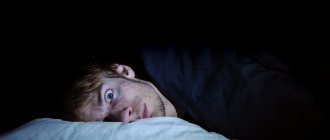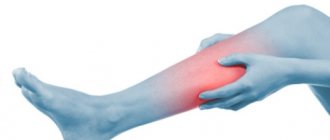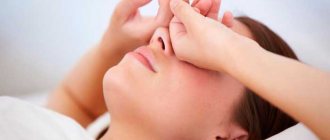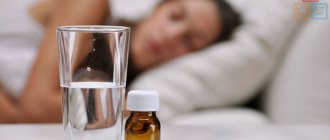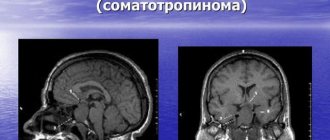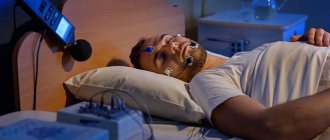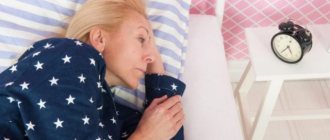Men's sleep and what are its features? A new study conducted by Finnish scientists has once again proven that in order to feel healthy, you need to get enough sleep, spending at least 7-8 hours a day.
Experts have determined the most optimal sleep time by comparing data on the duration of sleep and the number of working days they missed per year. The scientists were interested in whether the participants had sleep disorders, symptoms of insomnia, daytime sleepiness, and average sleep duration. It found that men who reported frequent insomnia symptoms had more sick days per year compared to those who never or rarely experienced such symptoms.
There were similar results in women. According to Finnish researchers, the optimal duration of night sleep for men was seven hours 46 minutes, and for women – seven hours 38 minutes.
Sleep deprivation is thought to negatively impact cognitive processing, concentration, and memory, and the effects are quite noticeable. People who don't get enough sleep are characterized by low energy levels, poor concentration and depressed mood.
Sleep Disorder: Description
Sleep disorders are sleep problems that occur over a longer period of time and significantly affect a person's ability to perform daily tasks.
Forms of sleep disturbance
Experts identify more than 80 different sleep disorders, which can be divided into eight main groups based on the type of symptoms:
- Insomnia: These include falling asleep, early morning awakening, and chronic compulsive sleep. In addition, patients complain, for example, of fatigue, problems with attention or memory, worsening mood, tension, headaches and/or concerns about sleep disturbances. Insomnia is one of the most common forms of sleep disorders. They may be caused, for example, by psychological stress (such as financial problems) or drug abuse (such as excessive use of sleeping pills).
- Sleep-related breathing disorders include, for example, various forms of sleep apnea. This leads to interruption of night breathing. There are breathing pauses - often unnoticeable to a sleeping person - for a short time.
- Hypersomnia of central nervous origin. In these sleep disorders, patients mainly suffer from excessive sleepiness during the day, although the amount of sleep at night is not reduced and there is no circadian arrhythmia (that is, individual day and night rhythms). Hypersomnia includes, for example, narcolepsy (“sleeping sickness”), daytime sleepiness due to traumatic brain injury or as a result of drug or substance abuse.
- Circadian arrhythmias during sleep and wakefulness: These rhythmic sleep disturbances can be caused, for example, by time zone changes (jet lag), shift work, organic diseases or drug or substance abuse. They lead to insomnia and massive daytime sleepiness.
- Parasomnia: These are episodic interruptions in sleep due to unusual physical phenomena or behavior, such as sleepwalking, nightmares, nighttime moaning, sleep-related eating disorders, or unconscious bladder emptying during sleep.
- Sleep disorders associated with sleep movements : Sleep disorders are caused by simple, mostly stereotypical movements. A common sleep-related movement disorder is restless legs syndrome (RLS). Other sleep disorders in this category include periodic limb movement disorders and nighttime teeth grinding.
- Individual symptoms, standard options, unresolved problems. This category includes all sleep-related symptoms that fall on the border between “normal” and pathological or that cannot yet be clearly classified as normal or pathological from a scientific point of view. Examples: Short naps (requiring less than five hours of sleep per night), late sleep (usually requiring more than ten to twelve hours of sleep per night), and severe, repetitive muscle twitching when falling asleep (drowsiness). Even primary (benign) snoring and sleep talking fall into this category, although they usually disturb not the sleep of the person in question, but the sleep of the bedmate.
- Other sleep disorders. This applies to all sleep disorders that cannot be classified into one of the other categories, for example because they have not yet been sufficiently studied or have features of different sleep disorder categories.
Different sleep disorders may overlap. For example, some people suffer from sleep disorders (insomnia), as well as sleepwalking (a form of parasomnia) and sleep disordered breathing. This is what makes the topic of sleep disorders so complex.
Sleep disturbance: causes and possible diseases
Sleep disorders can be classified as primary or secondary.
Primary sleep disorders
No physical or mental cause can be found for primary sleep disorders. They are caused by stress or unfavorable sleep conditions.
Secondary sleep disorders
Secondary sleep disorders have a physical (organic), mental or psychiatric cause:
- Mental illnesses such as depression, anxiety disorders, psychosis, or schizophrenia almost always cause sleep disturbances (eg, trouble sleeping).
- Organic or neurological disorders can also cause sleep disorders such as insomnia, hymenomnia or circadian rhythm sleep disorders. Examples are chronic pain (eg, rheumatic diseases), cancer, hormonal diseases (eg, hyperthyroidism), restless leg syndrome, heart and lung disease, chronic kidney or gastrointestinal disease, Parkinson's disease, dementia, multiple sclerosis, meningitis. , stroke, brain tumor and epilepsy.
- Some medications may cause sleep disturbances as a side effect. These include antibiotics, some antidepressants (eg, MAO inhibitors, SSRIs), hypertension medications (eg, alpha blockers), asthma medications (eg, theophylline), sleeping pills such as benzodiazepines (eg, insomnia - after abrupt cessation) ), cortisone, thyroid hormones, drugs for dementia - diuretics, antihistamines (antiallergy drugs), as well as drugs taken by cancer patients as part of chemotherapy (cytotoxic drugs).
- Drugs and psychotropic substances can also cause sleep disturbances, such as difficulty falling asleep, trouble staying asleep or sleep apnea. For example, alcohol, caffeine (eg coffee, black tea, energy drinks), nicotine, cannabis, heroin, cocaine and ecstasy are sleep-inducing drugs.
Heart disease
If a person has problems with the functioning of the left ventricle, the quality of his sleep is disturbed. With this disorder, the heart cannot pump the blood accumulated in the lungs with the necessary force. As a result, the patient experiences shortness of breath, which at night requires getting up and sitting for a while.
Hypertension
When atherosclerotic plaques are deposited on the walls of blood vessels, blood cannot circulate freely. As a result, a person experiences frequent headaches, dizziness, sometimes shortness of breath and problems sleeping. For some people, blood pressure may become so high that it makes it difficult to fall asleep.
Asthma
People with this chronic condition also often experience sleep disturbances. With asthma, shortness of breath most often bothers you at night, disrupting proper rest.
Hyperthyroidism
An overactive thyroid gland can cause increased heart rate and anxiety, which can also lead to insomnia.
Heartburn
Heartburn tends to get worse when lying down. Sometimes severe heartburn is accompanied by a feeling of suffocation and coughing attacks, which in no way contributes to rest at night.
Restless legs syndrome
According to experts, in almost 10 cases out of 100, the cause of insomnia is a disorder known medically as restless legs syndrome. This disorder is characterized by involuntary leg movements. Within an hour, the patient can make from 50 to several thousand leg movements. A person feels as if insects are crawling on his skin or the blood in his vessels is flowing unnaturally fast. It is also known that the symptoms of this disorder intensify at night. Unfortunately, there is still no effective medicine that would help cope with the disease. Warm compresses help some patients, while others, exhausted from a sleepless night, still fall asleep in the morning. In especially severe cases of the disease, doctors resort to potent sleeping pills.
Insomnia during pregnancy
Frequent urges to go to the toilet, the baby's kicks, the pressure of the uterus on the diaphragm - all this explains why expectant mothers suffer from insomnia. To improve the quality of your rest, you can do some relaxing exercises in the evening, take a warm bath with a few drops of lavender and be sure to ventilate your bedroom well.
Menopause
Studies have shown that the duration of sleep phases depends on hormonal levels. In particular, female hormones estrogens can prolong the REM sleep phase, which ultimately affects the quality of rest. Hormones are considered the main culprits of insomnia in women during menopause. Taking hormones will help cope with the problem, among other things.
Medicines and stimulants
Some medications, such as antidepressants, glucocorticoids, and oral contraceptives can affect the quality of night's rest. If a person has been taking sedatives for a long time, then after an abrupt end of the course or after an overdose of sedatives, problems with falling asleep may begin. Additionally, pills designed to suppress appetite may also cause insomnia. Some drinks consumed in the evening can also cause insomnia. First of all, we are talking about black coffee, strong tea and energy cocktails.
Difficulties by period of life
Throughout their lives, women very often face the problem of night rest during the menstrual cycle and before it.
Doctors explain this process by strong hormonal changes during these periods of time. Very often, difficulties with sleep are also accompanied by other disturbances in a woman’s psychological activity: body fatigue, nerves, stress, worries, difficulties with her significant other. Experts associate the presence of proper and deep sleep with the production of a special hormone by the human body. Before the age of forty, it is reproduced in the required quantity, in which case other reasons will affect the quality of sleep. After forty years, the disorder begins to acquire physiological factors - a lack of hormone production.
Experts have identified groups of sleep disorders depending on the woman’s age group. The reasons for the development of malaise in girls under the age of thirty include:
- Spending a long time at the computer or TV screen in the evenings. As a result, this leads to disturbances in time orientation, so the body simply does not have time to fully prepare for a night's rest.
- During pregnancy. When carrying a baby, a woman's hormones begin to be produced differently. In this case, there are regular mood swings, as well as difficulty going to bed.
Factors that influence sleep disturbances in women under the age of thirty include difficulties at home, irregularities in the menstrual cycle, regular stress, very tight nightgowns, and excessive physical activity during the day. Factors that are expressed in the excitation of the central nervous system, the woman’s experiences, and the level of the hormone in the body are within normal limits.
At the age of thirty to forty years, insomnia occurs due to personal experiences, they cannot be attributed to problems with hormonal levels:
- difficulties at work, unfulfilled dreams, scandals in relationships with your man or in the family;
- a midlife crisis occurs. At this time, a woman begins to reconsider all her priorities in life and changes her values.
The causes of insomnia in women over 40 years old are considered more physiological than mental:
- The production of hormones deteriorates; their quantity is simply insufficient for proper rest.
- A woman’s reproductive function decreases; during menopause, difficulties arise with the reproduction of hormones.
- The well-being of women worsens, their health is impaired, and somatic and neurological diseases occur.
Psychological factors include severe anxiety and stress.
Causes of insomnia in women over 50 years of age:
- reduced immunity;
- increased irritability and stress;
- emotional instability.
At this time, the amount of the hormone continues to actively fall, due to worries, the development of physical ailments becomes even clearer.
Is it possible to cure insomnia completely: prognosis
Insomnia must be treated. It is possible to completely get rid of the disease, but this requires proper and long-term treatment.
Efficiency will depend on correctly identifying the causes of the disease and their complete elimination. It is difficult to predict the course of the disease, since factors affecting curability may change.
There are two types of forecast:
- Favorable . It has the following factors: male gender. This is due to the fact that women are more susceptible to insomnia due to greater emotionality;
- setting the patient to overcome the disease. Having motivation plays a big role on the path to recovery;
- insomnia as a clinical syndrome. When the disorder just begins to develop, treatment is much easier.
- age after 60 years. Older people are more susceptible to insomnia;
How does testosterone affect sleep?
With age, the production of male sex hormones slows down. Already from the age of 30, testosterone in their body decreases by 1.5–2% per year. Once a man turns 40, the quality of his sleep can decline dramatically. This is primarily due to the fact that the deep sleep phase is now much shorter than before, and testosterone synthesis has slowed down. After 50 years, some representatives of the stronger sex need to be treated for insomnia, since they can no longer fall asleep on their own.
However, right now it’s worth thinking about increasing sexual function. This will also promote healthy sleep. In this case, you need to give up sweet pastries and fast food, eat healthy food, spend more time in the fresh air, and improve your intimate life. Regular sexual relations are also one of the methods for increasing testosterone. A doctor can prescribe appropriate treatment here.
Which doctor should I contact and how should I treat it?
The disease is treated by a doctor - a somnologist. It is also advisable to consult with other specialists, depending on the causes of insomnia.
Diagnostics is a comprehensive examination of the patient and making a diagnosis. To prescribe effective treatment, diagnosing insomnia takes place in several stages:
- History . It is a primary diagnosis that uses conversation and test methods to collect information about the patient and his lifestyle and bad habits.
- Hardware diagnostics . It is carried out using two methods:
using an actograph. It is installed on the wrist and records the patient’s condition around the clock. In some cases, night video surveillance is used, for example, for sleepwalking;
by somnography method. The patient is in a clinic where sensors are attached to his body. During the night, the data is recorded with special devices and then checked using equipment.
How to maintain potency until old age
It is possible to restore potency, but this requires long-term treatment. It is much easier to prevent the development of impotence by following a few simple rules:
- be less nervous;
- get rid of bad habits;
- exercise regularly;
- walk in the fresh air more often;
- have sex regularly;
- Healthy food;
- treat all diseases in a timely manner.
You should introduce more antioxidant foods into your diet. Every day a man should eat at least one citrus fruit - an orange or grapefruit. They contain antioxidants and tone. Several times a week you need to eat celery and garlic, add honey and walnuts to your diet. Tomatoes and pumpkin seeds are good for men's health. Testosterone production increases with consumption of red meat, but in older age you should not abuse it. The permissible norm is about 200 g of meat per day.
Prevention must begin at a young age. By changing his lifestyle at 30, a man can maintain good health until old age.
ATTENTION! PROMOTION! Until December 31 in Russia
Various Treatments for Insomnia
Insomnia can occur against the background of regular stress and nervous tension, but in some situations it is a symptom of many serious diseases. In the first case, a person can solve the problem on his own, in the second, he needs a full examination and identification of the cause of the disorder. Only after this the doctor will advise how best to treat insomnia.
Drugs to improve sleep
Every person needs adequate sleep, so insomnia medications are increasingly being used to combat sleep disorders. They differ in therapeutic activity and duration of action, but they work on the same principle - they inhibit brain function, relieve nervous, muscle and emotional tension. Many people, not really understanding what they can drink for insomnia, begin to buy all available drugs, and only aggravate the problem.
Sleeping pills with a short-term effect make it easier to fall asleep without disturbing the cyclicity and structure of sleep. Medium-duration drugs relieve excitation and enhance inhibition.
Long-acting medications are intended for long-term use in the presence of a whole range of symptoms:
- long process of falling asleep;
- shallow and intermittent sleep;
- frequent night awakenings.
Modern pharmacology presents various groups of drugs for both adults and children.
Barbiturates
Derivatives of barbituric acid have a sedative effect and are prescribed for severe forms of sleep disorders. Side effects include lethargy, drowsiness, headaches and muscle pain. With long-term use, physical and mental dependence develops, and the pharmacological effect decreases. The drugs in this group reduce the duration of FBS, which is necessary for the complete restoration of the nervous system. This category includes drugs such as:
- "Phenobarbital";
- "Reladorm"";
- "Medinal";
- "Veronal".
Benzodiazepines
The medications have a pronounced sedative effect and suppress anxiety and fear. They are characterized by a wide therapeutic interval and relatively low toxicity. With prolonged use they are addictive. To achieve the goal, it becomes necessary to increase the dosage. The side effect manifests itself in the form of lethargy, daytime drowsiness, muscle hypotonia, decreased concentration, memory impairment, and anterograde amnesia.
It is important to know! Today, drugs are rarely used due to a wide range of undesirable effects. In case of severe sleep disorders accompanied by panic attacks, a short course is prescribed.
This category includes:
- "Elenium";
- "Lorafen";
- "Relium";
- "Nitrazepam";
- "Triazolam."
Z-drugs
New generation medications comprise the non-benzodiazepine Z-group. In the usual dosage, they speed up the process of falling asleep, reduce the number of night awakenings and generally increase the duration of sleep. However, they do not have a muscle relaxant or anticonvulsant effect, nor do they eliminate feelings of anxiety and fear.
Medicines are prescribed mainly to elderly people in short courses, since long-term use is addictive. An advantage is the lack of drowsiness, but in rare cases patients complain of weakness. Popular representatives are:
- "Zolpidem";
- "Zaleplon";
- Zopiclone.
Melatonin-based products
The drugs have all the qualities of a sleeping pill, do not disrupt the structure and cyclicity of sleep, speed up the process of falling asleep, reduce the number of night awakenings, and some of them reduce the risk of nightmares.
It is important to know! The medications have a positive effect on the emotional sphere the morning after taking them and do not cause feelings of fatigue, drowsiness, lethargy or irritation. Drugs in this group do not have a dependence syndrome.
The list of medications includes:
- "Melaxen";
- "Melarena";
- "Circadin";
- "Rozerham."
Herbal remedies
This category can include both single-component and combination drugs. They have a mild sedative effect, eliminate anxiety and nervous tension, reduce sensitivity to stress, and facilitate the process of falling asleep. The composition contains natural herbal extracts, microelements, and vitamins. They can be purchased at a pharmacy without a doctor's prescription; the pharmacological effect is achieved immediately or after a few days. This group includes:
- "Persen";
- "Novo-Passit";
- "Neurostabil";
- "Triason";
- "Dormiplant";
- "Sonylux".
Patients prone to allergic reactions and suffering from temporary sleep disturbances can be prescribed antihistamines, in particular Donormil, which is taken in a short course for no more than 5 days.
Attention! This is the best remedy for insomnia among medications, since it is allowed for pregnant women in any trimester, but has restrictions during breastfeeding.
Since the sedative is available without a prescription, you should read the instructions for use.
The most popular are homeopathic remedies, as well as combination drugs that have a sedative and antispasmodic effect. They facilitate the onset of natural sleep and have a mild hypotensive effect. These are Valocordin and Corvalol.
If the cause of insomnia is pain, doctors advise taking analgesics and antispasmodics. Trimetin, Promedol, No-Shpa, and Domperidone have a good effect.
Treatment without drugs
To solve the problem without the help of medications, it is necessary to use alternative methods. The daily routine should be designed in such a way that at least 8 hours of sleep at night are allocated and there is still free time for sports, walks, reading, favorite hobbies and hobbies and just a pleasant rest. If problems with falling asleep do not disappear, then you can resort to folk remedies for insomnia and use them at home.
Massage
One of the effective methods of restoring sleep is acupuncture massage. You can do it at home yourself, having previously identified the necessary points in yourself and learned how to apply pressure on them correctly. Manipulations should be performed for 7 seconds with 3-5 repetitions with soft and short presses until a slight pain is felt, using the thumb, index or middle finger. If unpleasant conditions occur: pulse rate, palpitations, nausea, profuse sweating appear, the massage should be stopped.
Baths
Water procedures in themselves have a relaxing effect and set the mood for relaxation.
If you regularly take baths with the addition of natural ingredients, they will produce a pronounced healing effect. To normalize sleep and eliminate signs of insomnia, the following procedures are suitable:
- with hop cones;
- with essential oils of orange, mint and chamomile;
- with a string;
- with a decoction of spruce pine cones;
- with a medicinal mixture of jasmine, elderberry, hops, mint;
- with a decoction of fir and lemon balm.
After completing the procedure, it is recommended to drink a cup of tea with the addition of mint, lemon balm, and honey.
Aromatherapy
If the cause of insomnia is stress or overexertion, then relaxation methods will help, one of which is aroma therapy.
- General calming can be achieved with the help of essential oils, sandalwood, lavender, geranium, rose, neroli, hops, jasmine marjoram.
- Extracts of valerian, bergamot, passionflower, patchouli, vetiver, petitgrain, and benzoin have an excellent effect.
- To improve the process of falling asleep, it is recommended to use orange, tangerine, cypress, cedar, myrrh, and juniper.
- Lavender, neroli, chamomile, and incense will help with restless sleep.
Prevention
To avoid sleep disturbances in adults, you need to follow simple rules:
- Ventilate the room regularly.
- Sleep in a comfortable bed.
- Don't overeat before bed.
- Finish active activities (sports, household chores) at least 2 hours before bedtime.
- Go to bed and get up at the same time.
- Avoid strong emotions (both positive and negative) in the evening.
Read a good book or listen to calm music before bed. Or try falling asleep to white noise. This can be a good technique not only for children, but also for adults.
Sleep disorders: what can you do yourself?
Of course, if the cause of the sleep disorder is an organic or psychiatric disease, it is treated by a doctor first. Moreover, you can also do something on your own against sleep disorders.
This applies more to sleep disorders that are not organic or psychiatric, such as, for example, difficulty falling asleep, staying asleep and/or early morning awakening (insomnia) due to stress or unfavorable sleep conditions. Sleep aids are usually not needed: research shows that two thirds of all sleep problems can be corrected with non-medical measures. First of all, good sleep hygiene is one of these measures. Includes the following rules:
- Maintain the individually required amount of sleep. Especially the elderly
- Get used to regular sleep.
- Try taking a nap during the day.
- Make sure you have comfortable sleeping conditions. This includes keeping the bedroom at about the right temperature - around 16°C is optimal.
- Don't drink alcohol or coffee in the evening - both stimulate the nervous system. If you are sensitive to caffeine, you should go without it from midday.
- Pay attention to a balanced diet and regular exercise. If you only eat fast food and sit on the couch all day, you don't have to worry about sleep problems.
- Make sure you have a relaxing evening in your life that slowly ends the day. On the other hand, a strenuous evening fitness workout or an exciting thriller, just like evening reading, can quickly lead to insomnia.
Psychological methods
Cognitive psychotherapy is used as an alternative treatment method. Its use is effective in cases where the cause of sleep disturbance is not related to the current illness , but is hidden in the patient’s self-hypnosis and catastrophizing of insomnia.
A cognitive psychotherapist conducts explanatory work with a person, explains that there is no need to be so critical of the disruption of the sleep process.
Complications and health problems will not develop as quickly, and the body independently regulates the need for hours of sleep and wakefulness. Attempts are also being made to establish the psychological cause that causes problems with rest at night.
More tips against sleep disorders
For sleep disorders, it is also very important that you do not experience fear of sleep disorders (“Oh my God, it’s after midnight and I’m still awake!”). In addition to good sleep hygiene, the following tips may also help with sleep disorders:
- Stimulus control: Use the bed and bedroom only for sleeping, not for television, for example.
- Sleep restriction: It sounds counterintuitive, but it helps: By reducing sleep duration by at least one hour, healthy people fall asleep faster the next night, sleep deeper, and are less likely to wake up during the night. How much sleep time should be reduced in each specific case can be calculated by the therapist. To do this, you will first need to keep a sleep diary for two weeks, where you will record the time you spend in bed each night and estimate your sleep time, how often you wake up, and your total sleep time.
- No stress trying to fall asleep: instead of restlessly rolling around at night for several hours, you should pick up a relaxing book or get up and actively engage in self-activity (like ironing).
- Cognitive Focus: Focus on calming thoughts and pictures in bed.
- Stopping the Mind: If constant thoughts and ruminations are preventing you from falling asleep, you must strictly break such thoughts - each time again.
- Relaxation treatments: progressive muscle relaxation, autogenic training, biofeedback, yoga and meditation can also relieve sleep disturbances.
Medicinal herbal tea for sleep disorders
There are several medicinal plants that can help with sleep disorders. They are mainly used as tea:
- Valerian is a medicine for sleep disorders. It has a sedative, but not analgesic (narcotic) effect, like chemical sleeping pills. Root tea can help with sleep disorders such as nervousness, anxiety, or drinking too much coffee. For chronic sleep disorders, several cups of this tea should be drunk throughout the day. If you don't like the slightly unpleasant taste of valerian, you can resort to neutral-tasting valerian drops, capsules or tablets.
- Hops can enhance the calming effects of valerian, which is why valerian is often combined with hop cones in tea. The cones form a highly soothing agent when stored. You can also make a sleeping pillow with hop cones: put hop cones in a cotton pillow and rest your head on it to sleep. After a week, renew the hop cones.
- Melissa is an old plant of monastic medicine. Melissa leaves and balm oil have a calming effect (as well as digestive power). Melissa oil is very expensive, so lemon balm leaves are used more often. If you have insomnia, you should drink several cups of lemon balm tea throughout the day.
- Lavender , with its purple flowers, has long been valued for its calming and sleep-inducing properties. For sleep disorders, drink two cups of lavender flower tea before bed.
- Passionflower may help with mild forms of nervous anxiety, trouble falling asleep, and nervous heart problems. It has a cardio-strengthening, calming and antispasmodic effect. Passion fruit herb is found in tea blends along with other calming and relaxing medicinal plants such as lavender and valerian.
- St. John's wort is primarily known as an herbal antidepressant. Since depression is often associated with sleep disturbances, St. John's wort may also help promote a restful night's sleep. The medicinal plant is taken in the form of tea or a finished preparation (for example, capsules, dragees).
Clay
You can relieve nervous tension and stress with the help of clay.
- Heat a small amount of natural material in a frying pan and divide it in half, pour it into socks, which you need to put on immediately. Wrap your feet in a warm scarf or blanket and leave until morning.
- In a deep container, combine 2/3 teaspoon of cosmetic clay with 10 g of dry yarrow herb and 40 g of lemon balm leaves. Add a third cup of boiling water. Use the resulting mixture as an application to the temporal areas and frontal area. To do this, a small amount of it needs to be placed between two layers of fabric. Keep the compress for a quarter of an hour.
Soothing and sleep-improving baths
Even baths with medicinal herbs can help with insomnia. You can get a pre-made soothing bath mixture from a pharmacy, or you can make your own bath mixture, such as a lavender bath:
Mix 2 egg yolks, 1 cup cream (or milk), 2 tablespoons honey, 3 to 4 tablespoons salt and 1 teaspoon lavender oil for a full bath and place in warm water at 37 to 38°C. Egg yolk , cream or milk and honey ensure that the essential oil not only floats on the surface of the water, but also spreads well throughout it. You must swim in this water for at least 20 minutes.
Instead of lavender oil, you can also use lavender flowers: pour 100 g of lavender flowers into 2 liters of hot water, leave for 5 minutes and pour into the bath. Bathing time is again at least 20 minutes.
Other methods
Depending on the clinical manifestations of the sleep disorder, the following methods of combating insomnia can be used:
- reading a book at night;
- listening to classical or relaxing music;
- hypnosis;
- massage of the temporal region of the head or collar area;
- a calm conversation with a loved one.
Each of the above methods is effective for uncomplicated forms of insomnia and other sleep disorders, the process of falling asleep and waking up. They are safe for the body and do not entail side effects.
Causes of insomnia in men
As noted above, insomnia in men can occur both due to psychological disorders and due to real health problems that need to be treated.
A brief description of the possible causes of insomnia can answer a number of questions.
- External reasons that prevent you from falling asleep quickly and maintaining sound, healthy sleep. These reasons may be: a noisy environment in the sleeping area, bright lighting, increased or decreased air temperature, high humidity.
- Emotional experiences, which include various manifestations of stress. For example, a hard day full of negative impressions can completely deprive not only an adult man of sleep, but also a small child whose body works like a clock.
- Overwork. It’s a paradox, but too much fatigue sometimes interferes with sound sleep and falling asleep quickly.
- Illnesses can also cause insomnia. Such a disease does not necessarily become a serious pathology. A mild headache or toothache is enough to completely prevent sleep.
- Dangerous habits, such as nicotine addiction and alcohol abuse, disrupt hormonal metabolism. This affects the quality of sleep and the intensity of falling asleep.
Any of the above causes can be treated. You just need to make some effort and change something in your daily routine.
Consequences of sleep disturbance
Chronic sleep disorders have external manifestations. A lack of proper rest leads to redness of the eyes, deterioration of the structure of the skin, the appearance of dark circles under the eyes, fragility, loss of shine, and hair loss. An increase in the level of the hormone cortisol in the body provokes uncontrollable cravings for sweet products, due to the intake of which in excessive quantities a person quickly gains weight. Somatotropin deficiency leads to increased deposition of subcutaneous fat, slows down fat burning, and changes the ratio of muscle mass to adipose tissue.
Poor quality leisure time at night has a negative impact on a person’s cognitive abilities. The subject becomes inattentive and uncollected. It is difficult for him to assimilate and extract the required information from memory. Due to decreased concentration, work productivity deteriorates. Sleep disorders are responsible for premature human death. According to statistics, more than half of occupational accidents are associated with pathological drowsiness. Over 45% of accidents on the roads are associated with lack of sleep or inadequate rest.
Sleep disturbances affect the psycho-emotional state of the individual. A person becomes nervous and irritable, which causes the quality of interaction in society to suffer. He loses calm over the slightest trifles and reacts inadequately to stimuli. The person is characterized by emotional lability and indicates a predominance of melancholy mood. The person loses interest in current events. He loses the ability to feel pleasure from pleasant things. Motivation for activity disappears. A person becomes susceptible to anxiety spectrum disorders.
Sleep disorders worsen physical health, increasing the risk of developing diseases of the cardiovascular, nervous, genitourinary, digestive systems, respiratory organs, and musculoskeletal system. In patients, a significant decrease in the functions of the immune system is determined, which makes the person defenseless against viral and bacterial infections.


